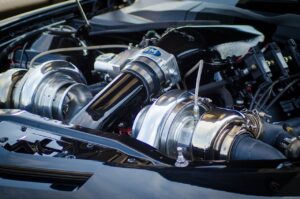
High tensile metals are often used when parts demand exceptional strength, toughness and wear resistance. Tensile strength refers to the amount of force it takes to pull an object apart. When your parts require a product that can support a maximum load of stress without fracture when being stretched, you need to know which metal has the highest tensile strength. The answer to this question is not as straightforward as you may think.
When you are considering which metal has the highest tensile strength, you must first determine whether you are considering only pure metals or are also including man-made alloys (metals mixed with other elements). The simple fact is that even the strongest natural metals cannot match the tensile strength of metal alloys.
If pure metals are your only consideration, the metal with the strongest tensile strength is Tungsten. Tungsten can maintain up to 500,000 psi at room temperature; moreover, its excellent heat resistance allows it to withstand temperatures in excess of 1,500° Celsius without losing its status as highest tensile strength winner in the natural metal category. However, non-alloyed Tungsten’s low ductility and impact strength make it brittle and prone to shatter, which often leaves it as a less-suitable choice for many applications.
Metal alloys are created when another element is added to the metal in order to improve its physical and chemical properties. High tensile steel alloys are an excellent choice for projects where exceptional strength and temperature and corrosion resistance are priorities. Combining steel with other metals such as chromium, molybdenum, manganese, nickel, silicon, and vanadium creates products with a high yield and outstanding tension resistance and fatigue strength.
Magnesium alloys are newer to the market, but the research and current applications are very promising. Magnesium, the lightest structural metal, is combined with other elements, including aluminum, copper manganese, silicon, zinc, and zirconium. These alloys offer desirable inertness, extremely light weight, high corrosion resistance, and exceptional tensile strength. Magnesium alloys can be found in the automotive and aerospace industries, as well as in commercial products such as luggage and laptop cases.
It’s safe to say that Tungsten is the pure metal with the highest tensile strength, but it cannot compete with its metal alloy competitors. These alloys oftentimes offer many advantages in addition to superior tensile strength, including better impact strength, heat and corrosion resistance, durability, and biocompatibility.
Understanding the application of the material is paramount to determining which metals have the appropriate physical and chemical properties to get the job done. At Reading Plastic & Metal, we have over forty years of experience and expertise to help you determine the right parts for your project.
Count on Reading Plastic & Metal to provide you with the solutions you need to complete your project, on time and on budget. Contact us today at (610) 926-3245 or to discuss your next project!